Where’s the sculpture garden? Couple feels ‘hoodwinked’ by Nelson Gallery mansion sale
When Peter and Heather Caster bought the sprawling Rockhill Tennis Club in February 2019, the sale came with what they believed were some tacit promises.
One, in buying the home for $485,000 from its neighbor and owner, the trustees of the foundation for the Nelson-Atkins Museum of Art, the Casters were agreeing to both renovate and restore the structure. They would turn it back into a stately, albeit modernized, three-story, 10-fireplace limestone home.
House flippers with years of experience, the Casters bought the deteriorating place, built in 1910, for nearly $200,000 more than its original asking price to beat back competitors. The mansion was once the home of socialite Laura Nelson Kirkwood, daughter of The Star’s wealthy founder, William Rockhill Nelson.
The Casters reasoned that, after hundreds of thousand of dollars of improvements, the house at 4520 Kenwood Road had the potential to be what Peter Caster called “one of the top, most iconic homes in Kansas City.”
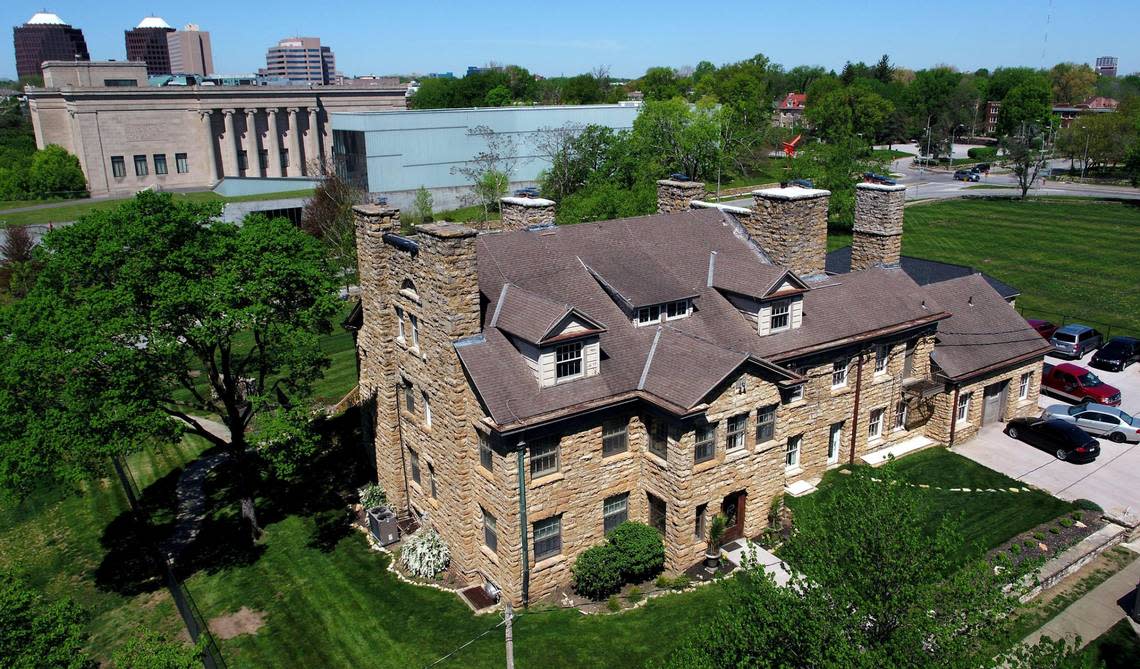
But that would only happen, he said, if the trustees of the Nelson Gallery Foundation kept what the couple allege is a so-far unfulfilled promise, but which the Nelson holds was never a promise or obligation at all:
To build a world-class sculpture park.
“We’re starting to feel a little hoodwinked,” Peter Caster said this week. The Nelson insists it dealt fairly and misled no one.
The Nelson owns 3.2 acres of land that surrounds the mansion/former tennis club on three sides.
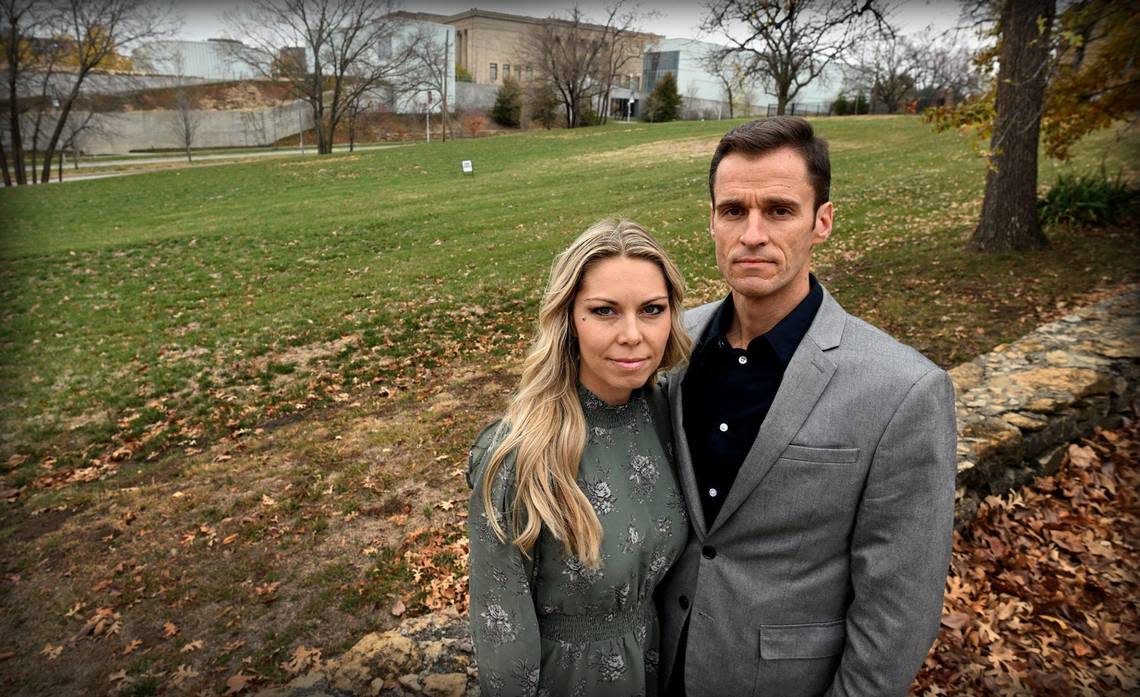
For 14 years, since at least 2008, Nelson officials have talked about adding a sculpture garden there. In 2017, the Nelson quelled neighborhood resistance, and through the Kansas City City Council got the parcel rezoned for future expansion that would, should it happen, include a sculpture park. In 2018, the real estate listing the Casters saw before bidding on the property highlighted a future park:
“Home comes with 3/4 acre lot and will be surrounded by breathtaking sculpture garden maintained by the Nelson,” the real estate listing read.
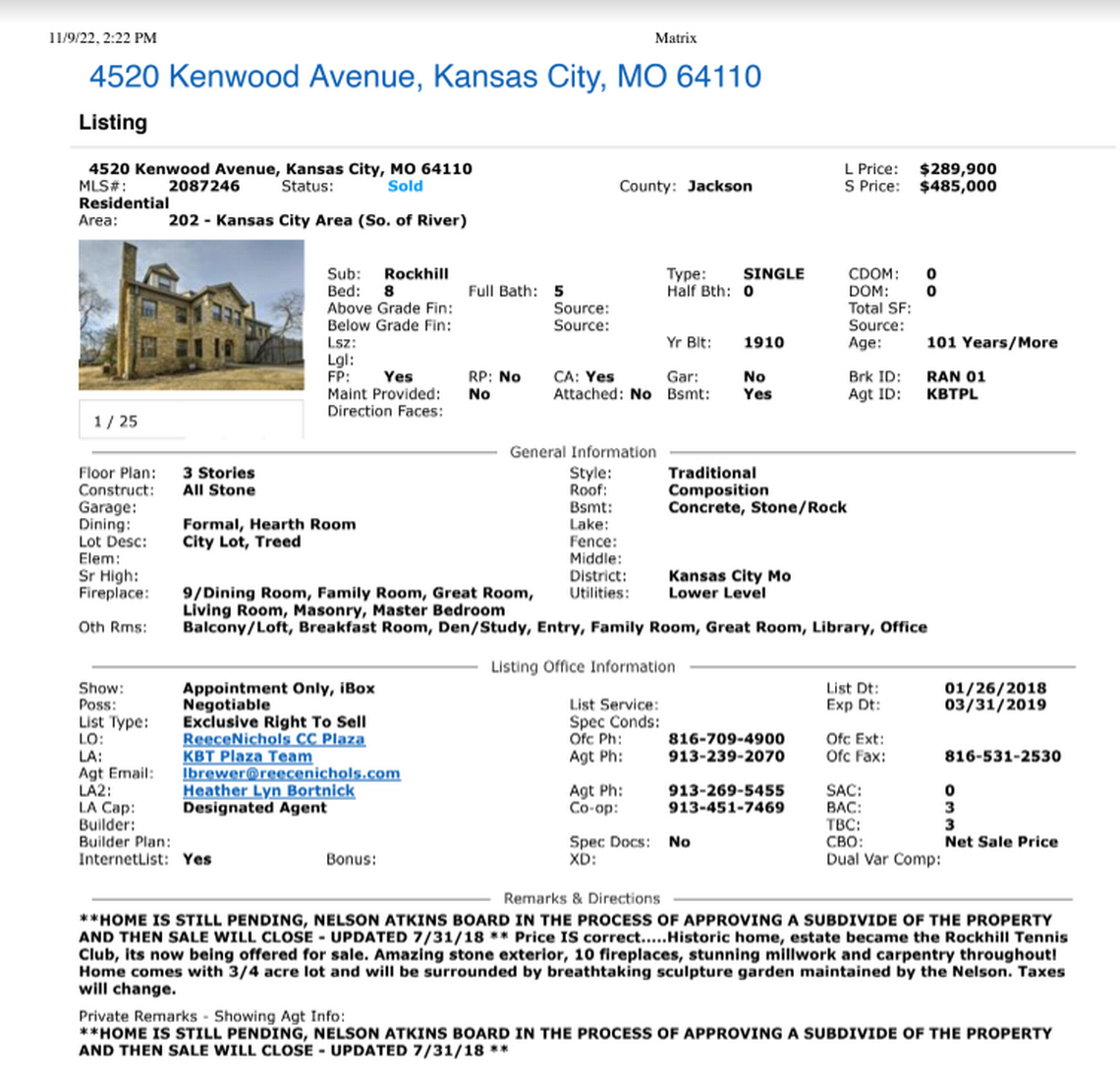
Except now, nearly four years and at least $750,000 in renovations later, when the couple look out their windows: No park. No sculptures.
They’re not unhappy with the house. “We love the house,” said Heather Caster. She and her husband live there with their 12-year-old daughter, Piper, as well as five other close family members. They may ultimately choose to stay there rather than flip it.
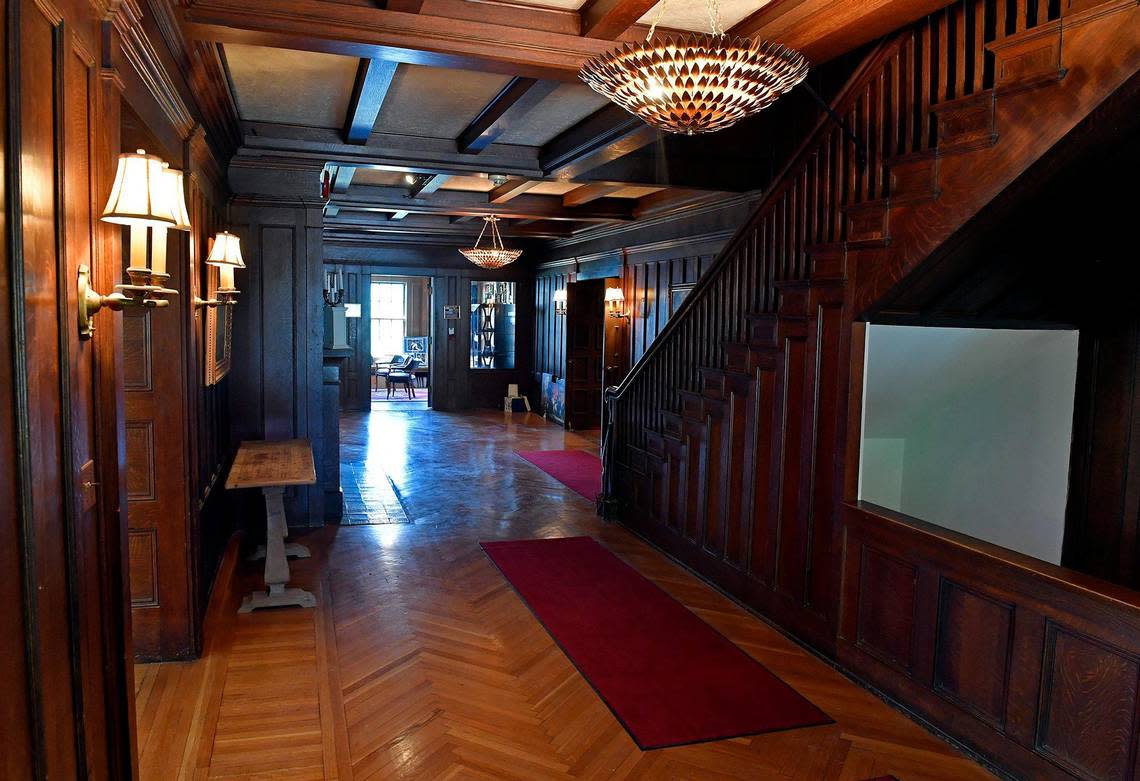
“Do we have to move?” Heather Caster said. “No.”
But they also insist that if they had known that the Nelson was not going to build a sculpture park, they never would have paid almost $200,000 over the original $289,900 asking price to acquire it, much less refinance it time and again to pay for renovations.
A main reason they invested in the home, they said, was because of its unique marketability. Once redone, they reasoned, it would stand out as a historic limestone mansion on a rise with window and garden views of millions of dollars worth of museum art. They said that, back when they were buying, Nelson representatives met with them and spoke about the sculpture park. They reasoned that a mansion with that panache, surrounded by beauty, would fetch a premium.
In June of last year, the Casters put the house on the market for $2.5 million. Then they took it off.
“We really felt like, if there was a sculpture park, you’d have a huge draw,” Peter Caster said. “So, it’s kind of upsetting to us. Any reasonable person would think that, after three and a half years, we’d be looking out at one (a sculpture park) right now.”
They’ve instead spent that time, Heather Caster said, swapping emails with the Nelson, pressing them on progress, but getting nowhere. Heather Caster is resolute about what she wants from the museum.
“Build the sculpture park,” she said. “Yeah, build the sculpture park, just like they said. And if they can’t do that, then, I guess, we would say that we want the difference of what we paid over asking.”
The Nelson, meanwhile, holds that although they have long talked about the possibility of expanding its sculpture park to the grounds bordering the former Kirkwood house, there is no contract that specifically promises the Casters such surrounding art or has ever put a solid date on such a project.
Demands versus diligence
In recent days, both sides have taken the matter to their attorneys.
On Oct. 31, the Casters’ attorney, Daniel Zmijewski, sent a demand letter citing the real estate listing and other documents that reference a park.
In 2017, for example, the Nelson filed an MOU in Jackson County — a Memorandum of Understanding between the museum and the two nearby neighborhood groups, the Rockhill Homes Association and the Southmoreland Neighborhood Association — saying that any development of the 3.2 acres “shall only be a sculpture park, garden, or park with walkway paths and accompanying amenities.”
The Casters, in buying the property, had to agree to numerous contractual obligations, such as completing major renovations within two years. The Nelson not only retains a “continuing right” to review and approve any plans or designs for exterior construction, but also possesses first right of refusal of any future sale of the property. At the same time, papers also state that should the Nelson develop the surrounding property, it “proposes to construct a sculpture park, garden, or park with walking paths and accompanying amenities.”
“Since purchasing the Property,” the demand letter reads, “the Casters have performed their obligations. They have spent significant funds renovating the Property. The Nelson Trust, on the other hand, has not upheld its end of the bargain... Everyone understands that without the garden, the Casters’ property is worth significantly less.”
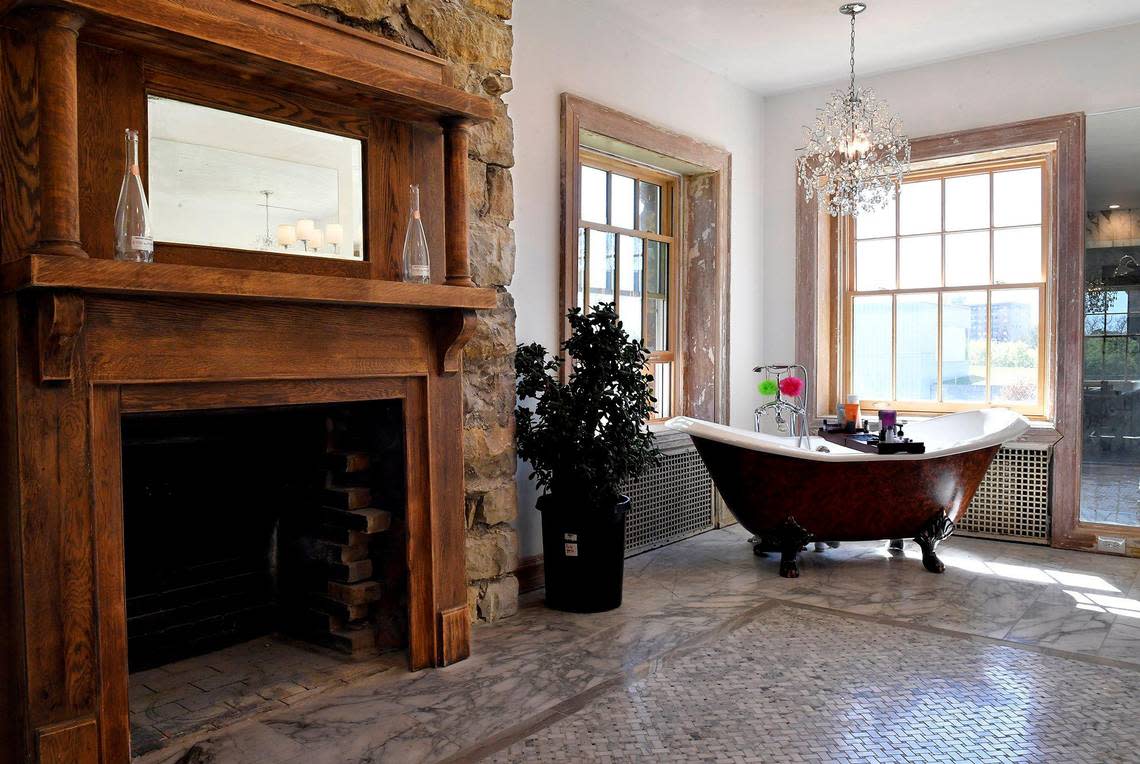
To avoid litigation, Zmijewski wrote, “we are writing to demand the Nelson Trust provide a document acknowledging work on the sculpture garden will begin immediately and be completed within a year. We request a response within fourteen (14) days of this letter.”
But the Casters did not have to wait that long. On Tuesday, the Nelson Trust’s attorney, Charles Renner of the Husch Blackwell law firm, responded.
Yes, his letter acknowledged, documents and agreements between the Nelson and the Casters talk about a possible sculpture park on the adjacent property but, Renner wrote, that is “if the remaining grounds of the property are developed,” with “if” being the operative word.
“That language does not obligate my client to act,” Renner wrote. “Notably, there is no timeline.”
For the Casters, who were counting on a future sculpture park to augment their investment, it may be a case of not doing enough due diligence to confirm the Nelson’s plans.
The Memorandum of Understanding, Renner’s letter continued, “simply allows for the installation of a Sculpture Park; it does not require such installation.”
In other words, if the Nelson develops that land, it will put in a sculpture park, but there is no obligation as to when.
The letter did point out that, in 2019, the north part of the property was used for an artistic purpose. It was the starting point for artist Andy Goldsworthy’s “Walking Wall,” a rock wall that acted as a kinetic sculpture, being repeatedly constructed and deconstructed as it made its way west across Rockhill Road, finally coming to rest outside and, in part, inside of the Nelson’s Bloch galleries.
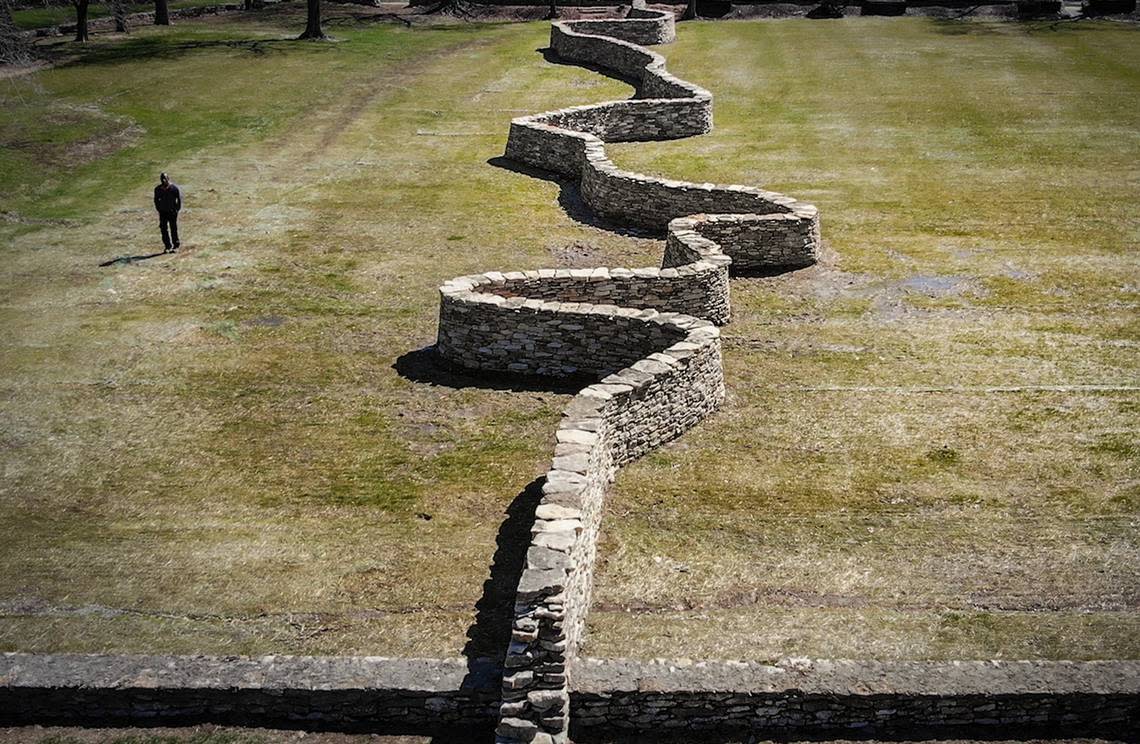
“The first and original section of ‘Walking Wall’ remains on the property today,” the letter reads. “Moving forward, my client will only develop the remaining grounds to include a Sculpture Park, if they find that such a development is aligned with their goals.”
Asked by The Star if the Nelson plans on expanding its current sculpture park or putting in a new park in that space, the Nelson’s response was open-ended.
“The museum’s intent has not changed,” an emailed statement read, “and we continue to meet the commitments we have made in partnership with the neighborhood.
“We still believe the property could be a beautiful sculpture park someday in the future, but there is not, nor has there ever been, a timeline. Enhancing and expanding our outdoor art spaces is one of many strategic goals that require significant fundraising, focused resources, and a multi-year plan.”
Peter Caster on Wednesday said the couple now need to consider their legal options, perhaps filing a lawsuit claiming possible breach of contract, even as the two continue to work on the house.
Jackson County, last year, set its market value at $1.3 million, hiking the couple’s property taxes from $7,650 per year to just short of $22,000.
The Casters have no doubt that their home is special. They have done major renovations, many of which were chronicled last year in The Star.
Whatever happens in the future, the home remains historic, first as William Rockhill Nelson’s wedding gift to his daughter, Laura Nelson Kirkwood. (The land that Nelson’s own mansion, Oak Hall, once occupied is now the site of the Nelson Museum.) From the Kirkwoods, the home passed to lumber business and society leaders DeVere and Pauline Dierks.
President Teddy Roosevelt visited there. Generals John “Black Jack” Pershing and Ferdinand Fochs of France, allied heroes of World War I, were guests at the home. It was the Dierkses who, in 1957, willed the house and its four acres to the museum. For 53 years after that, until 2010, the museum leased the house and grounds to the Rockhill Tennis Club.
What’s now grass once held a swimming pool and tennis courts, all many years gone.
Whether that same land one day becomes part of a “breathtaking” sculpture park, only time will tell.
